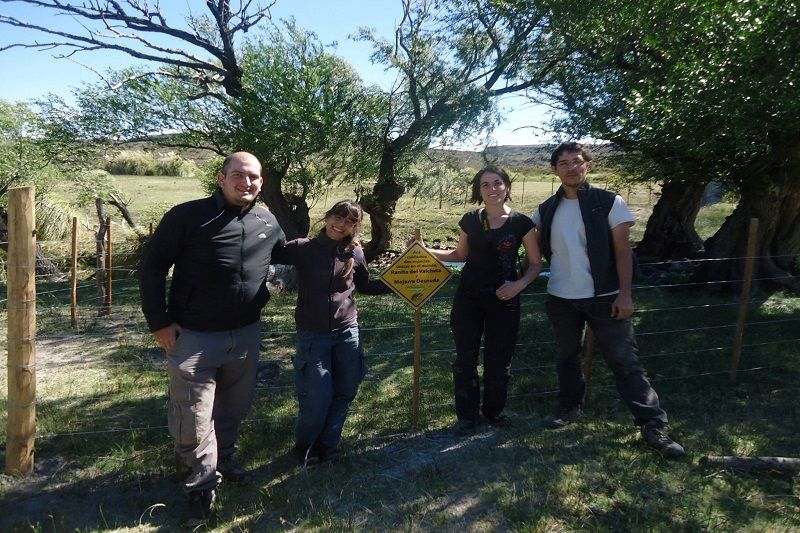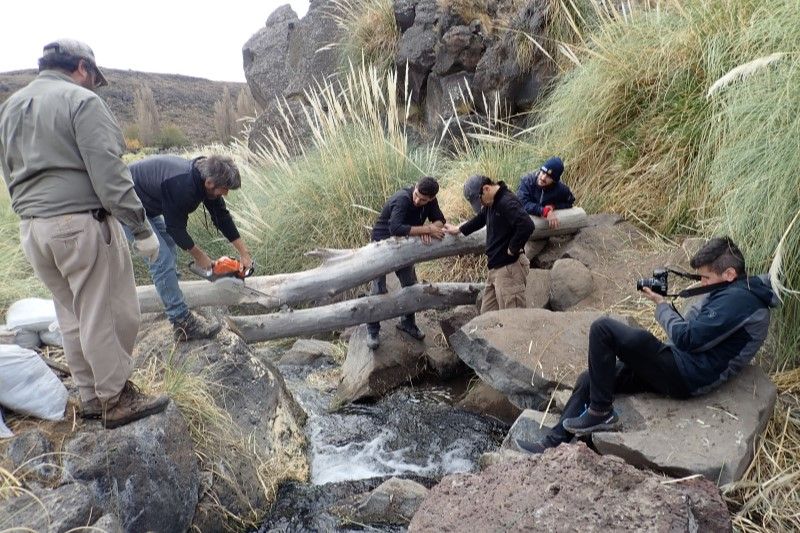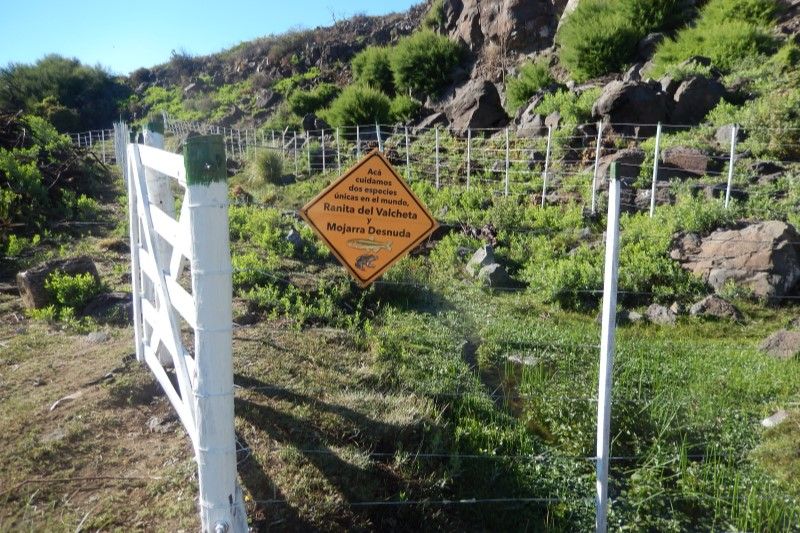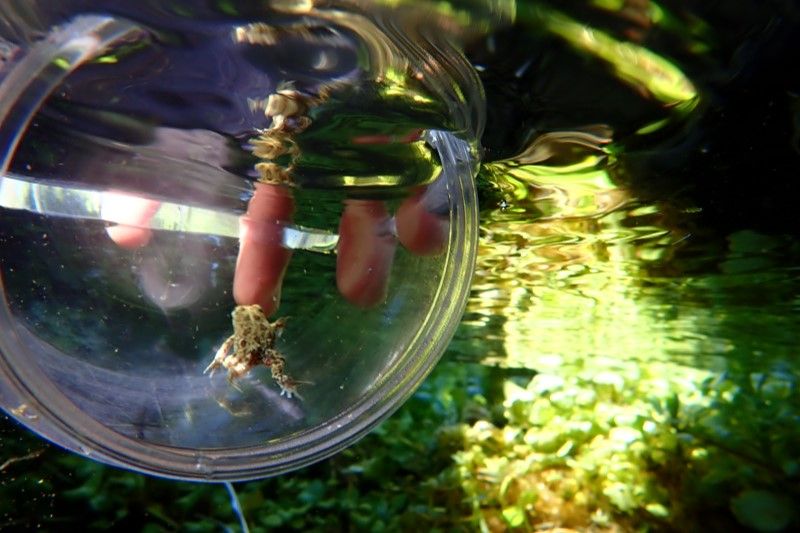Recovering the El Rincon stream frog
Patagonia’s most critically endangered frog
With a handful of isolated subpopulations remaining in the wild, the El Rincon stream frog, Pleurodema somuncurense, is Patagonia’s most critically endangered frog. Invasive rainbow trout cornered the frogs to the hot springs of the Valcheta Stream’s headwaters and even there, where they should be thriving, the frogs are sadly declining because of habitat destruction by nearby cattle.
But since 2013, Wild Plateau Initiative has been working on the recovery of this frog by addressing the threats. And thanks to PTES funding, the team led by Federico Kacoliris, carried out their ambitious plan, which aimed to ensure the long-term viability of El Rincon stream frogs by doubling the range and the size of the whole population.
Alleviating aquatic threats
The Valcheta Stream is the main watercourse of the Somuncura plateau, and it is located at the
northern edge of the plateau, in northern Patagonia, Argentina. The headwaters of the stream are hot springs which help to maintain a nearly constant water temperature throughout the year and this has allowed the evolution of several endemic species, most of them currently threatened.
Over the last four decades, invasive and aggressive rainbow trout numbers have been increasing, and their range is growing. So the team set to work installing fish barriers downstream made from wire mesh and gravel, which will stop the trout expanding. They also removed trout from an impressive 2.4km of stream. This is the first-time management like this has been carried out in Argentina.
Improving the habitat
The main human activity in the region is extensive cattle ranching. Cattle, kept by locals, graze and trample the banks of the stream, destroying the frogs’ habitat and the damage has already caused several local extinctions.
So improving the ground habitat quality on the banks of the stream was therefore vital. The team restricted the access of local cattle by building fencing which will increase the availability of food, shelter and breeding sites for the frogs by allowing the native vegetation to be restored.
Reintroducing captive-bred frogs
Finally, they successfully reintroduced captive-bred frogs into the managed sites where the frogs had previously gone extinct. The now, trout-free stream of suitable habitat will serve as a corridor to connect two frog subpopulations giving the species a chance of recovery. These translocated frogs are being monitored to assess their survival, successful reproduction and density.
During this time, the team also established their own NGO, Fundación Somuncura, with support from World Land Trust, which helped them buy a property of 8,000 ha. Here they’re establishing a private protected area and a Biological Station to boost conservation work in the region. This private reserve protects two subpopulations of frogs and other endemic and endangered species in the region.
Future planned activities
During the following months, the frogs are being monitored to ensure there are no trout in the cleaned areas and that the frogs are breeding. The team are completing a report about this management in order to send it to governmental authorities and founders.
Thank you for helping us fund this research to protect El Rincon stream frogs in Argentina.
If you’d like to support this project please donate or set up a direct debit today.





